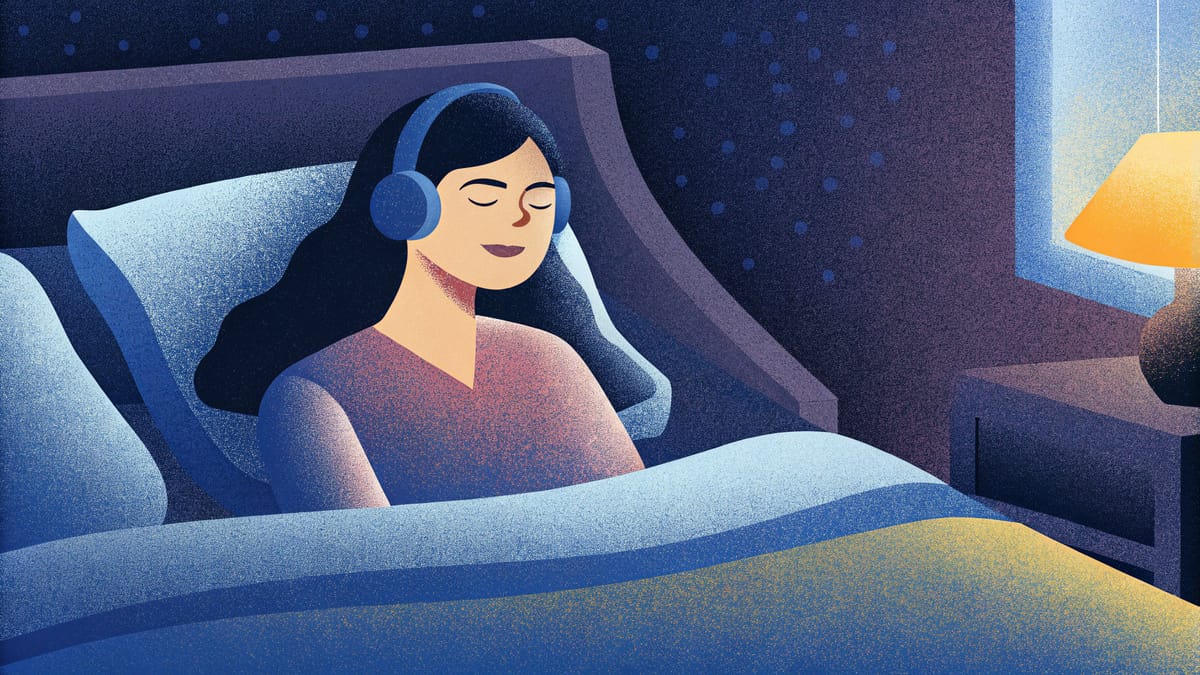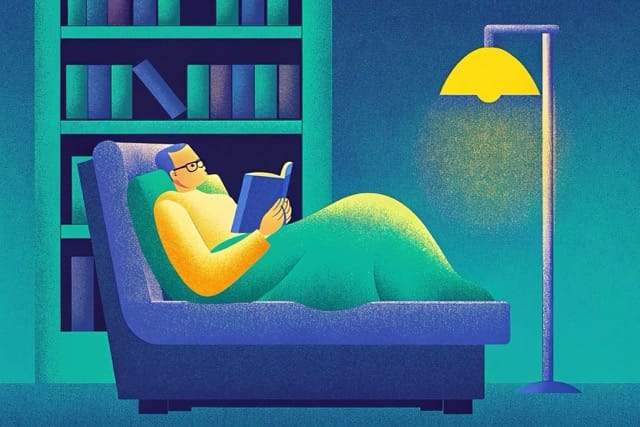Can Audio Bedtime Stories Be Used as a Natural Sleep Aid Instead of Melatonin?
Discover how audio bedtime stories like Dreamland Tapes can serve as a natural alternative to melatonin, offering a soothing path to relaxation and improving sleep quality.

Do you find yourself tossing and turning at night, searching for a natural way to drift off to sleep?
Instead of reaching for a melatonin supplement, have you considered the calming power of an audio bedtime story? This simple yet effective tool could be the key to helping you relax, unwind, and finally get the restful sleep you’ve been craving.

How Audio Bedtime Stories Help Calm the Mind
At the heart of their effectiveness, audio bedtime stories serve as a distraction for your mind. When our heads hit the pillow, it’s common for racing thoughts or worries to creep in, making it difficult to fall asleep. Listening to a story shifts your focus away from these thoughts, creating a mental escape.
Much like the bedtime rituals many of us experienced as children, these stories create a soothing environment that helps you relax and drift off more easily. The steady pace and gentle tone of most bedtime story narrations are designed to calm your mind rather than stimulate it.
By guiding your focus away from stress and onto a structured narrative, your brain begins to associate these moments with winding down. In essence, these stories create a mental bridge to sleep, similar to how lullabies work for babies and young children. The result? A quieter mind and a smoother transition into slumber.
Why Audio is More Effective Than Visual Aids for Sleep
Unlike visual cues, which can keep the brain alert and awake, audio works more seamlessly as a sleep aid. Hearing is the last sense to shut down as we fall asleep, which makes auditory stimuli ideal for helping the body slip into a relaxed state.

In contrast, visual aids such as screens can be counterproductive, as the blue light they emit disrupts the production of melatonin – a hormone essential for regulating sleep. Audio storytelling avoids this pitfall entirely.
Engaging but not overly stimulating, bedtime audio allows you to close your eyes, helping the body naturally prepare for sleep. By eliminating the need for screens, you’re giving your body the opportunity to align more closely with its natural sleep patterns. This non-intrusive, passive form of relaxation has made audio content a preferred choice for those trying to enhance their pre-sleep rituals.
The Growing Popularity of Bedtime Story Apps
The rise of apps and podcasts designed for sleep has made it easier than ever to access quality bedtime content. Platforms like Calm and Headspace offer a variety of bedtime stories specifically curated to help you relax and unwind.
These stories are carefully crafted with a soothing tone and pace to prevent overstimulation. Some apps even feature well-known voices, such as actors and celebrities, which can add a touch of familiarity or novelty to the experience.
Whether it's a favorite celebrity narrator or a gentle, unknown storyteller, these apps provide something for everyone. From classic fairy tales and nature descriptions to fictional stories with no plot twists or cliffhangers, the options are endless.
With regular use, these stories can become a comforting part of your nightly routine. Many users have discovered that pairing these apps with basic sleep hygiene practices amplifies their effectiveness, transforming their nights into serene and restorative experiences.
How Audio Differs From Melatonin
Unlike melatonin supplements, which directly impact your sleep-wake cycle by introducing a hormone to your body, audio bedtime stories work on a psychological and emotional level. They aim to create a relaxing environment and mental state rather than alter your biological processes.
For people whose sleep issues stem from stress or an overactive mind, this natural approach can be particularly impactful. Melatonin, while effective for certain sleep-related problems, comes with potential drawbacks.
It may cause side effects like grogginess or interact with medications. Audio stories bypass these risks entirely, offering a safe, non-invasive alternative.
While they may not address complex physiological causes of sleep disorders, they’re an excellent tool for promoting relaxation and disconnecting from daily stressors.
Integrating Audio Stories Into a Consistent Sleep Routine
One of the key benefits of audio bedtime stories is how seamlessly they can fit into your overall sleep routine. Sleep hygiene experts often emphasize the importance of having consistent pre-sleep rituals, as they send clear signals to your brain that it’s time to wind down.
By incorporating stories as part of this routine, you're training your mind to associate listening with relaxation and sleep. To maximize their benefits, aim to listen to audio stories at the same time each night.
Create a relaxing environment by dimming the lights, removing distractions, and letting the story replace any pre-existing bedtime habits that might interfere with your sleep. Pair this with other healthy practices like avoiding caffeine in the evening and keeping your bedroom cool and comfortable for optimal results.
Finding the Right Fit for You
The effectiveness of bedtime audio varies from person to person, and it might take a bit of trial and error to find what works best for you. While some may prefer gentle, descriptive nature stories, others might find comfort in lighthearted fiction or even historical accounts.
It can also come down to the narrator's voice – some find deep, warm tones soothing, while others may prefer soft, high-pitched voices. Experiment with different types of stories and narrators to discover your sweet spot.
The internet offers a wealth of free and paid content, so you’re bound to find something that clicks. Remember, consistency is key.
The more you allow your body and mind to associate bedtime stories with unwinding, the more effective they’ll become as a long-term sleep aid.
Key Takeaways
- Audio bedtime stories help calm the mind by distracting it from racing thoughts, creating a smooth transition into sleep.
- Hearing is the last sense to shut down, making audio an ideal medium for relaxation and bedtime rituals compared to visual aids.
- Bedtime story apps are a safe, non-invasive alternative to melatonin supplements and can be tailored to suit individual preferences.